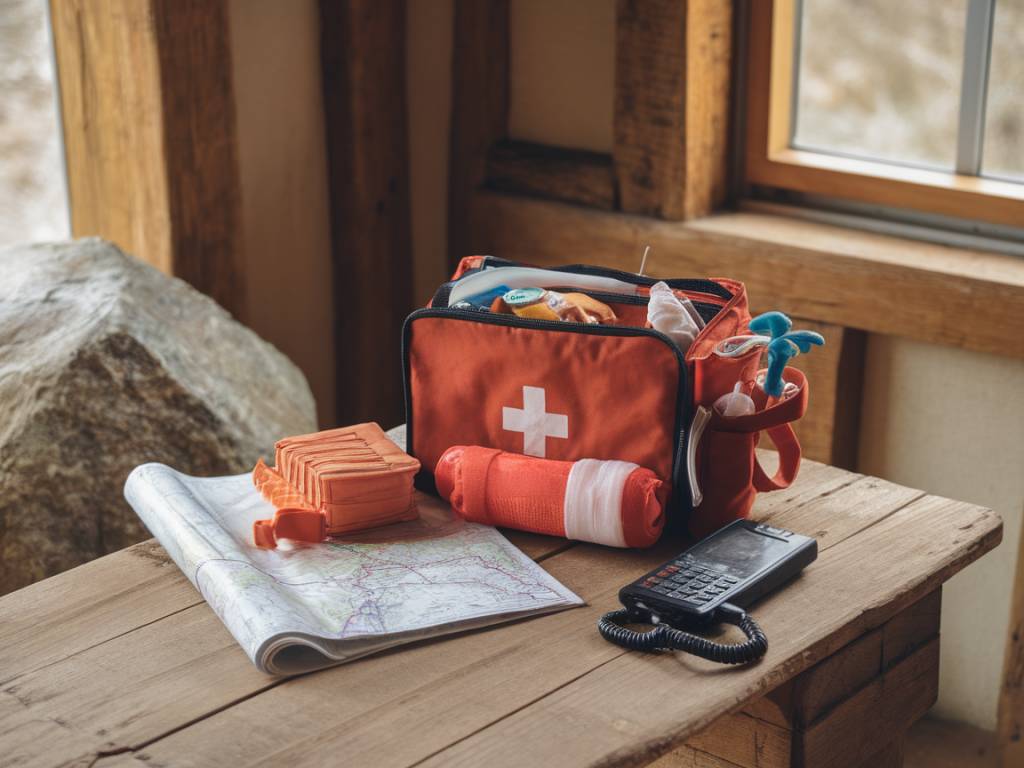
The importance of mental resilience in survival situations
When faced with survival situations, whether lost in the wilderness, enduring extreme weather conditions, or navigating a post-disaster environment, we often focus on the physical aspects like food, water, and shelter. However, one crucial element that determines success or failure in these scenarios is often overlooked: mental resilience.
Understanding Mental Resilience
Mental resilience is the ability to mentally and emotionally cope with crises or adversity. In survival situations, this means maintaining a level-headed approach despite the pressures and dangers surrounding you. It’s about staying focused, keeping calm, and making informed decisions even when faced with extreme stress.
Building mental resilience involves training your mind to withstand and adapt to challenging conditions. It incorporates techniques ranging from stress management and emotional regulation to problem-solving and maintaining a positive outlook.
The Psychological Impact of Survival Situations
Survival scenarios inevitably exert a significant psychological toll. The uncertainty, fear, and physical strain can lead to mental fatigue, despair, and even panic. Understanding the psychological impacts helps in preparing oneself to handle them more effectively. Here are some common psychological challenges one might face:
-
Fear and Anxiety: The unknown elements and potential dangers evoke fear and anxiety, which can cloud judgment and lead to rash decisions.
-
Loneliness and Isolation: Being alone or isolated can induce feelings of loneliness, exacerbating stress and reducing morale.
-
Fatigue: Physical and mental exhaustion can impair cognitive functions, making it harder to think rationally and make decisions.
-
Despair: When the prospects of rescue or survival seem dim, maintaining hope becomes critical yet challenging.
Techniques to Build Mental Resilience
Enhancing mental resilience is not an overnight task; it requires consistent practice and a mindful approach. Below are some effective strategies to build and maintain mental resilience in survival situations:
-
Practice Mindfulness and Meditation: These techniques help in cultivating a calm and focused mind. Regular practice can enhance your ability to stay present and manage stress effectively.
-
Positive Visualization: Visualizing positive outcomes and successful survival can reinforce a hopeful mindset, crucial for enduring difficult situations.
-
Stress-Management Techniques: Techniques such as deep-breathing exercises, progressive muscle relaxation, and journaling can help in managing acute stress.
-
Set Realistic Goals: Breaking down larger challenges into smaller, manageable tasks can make the situation seem less daunting and more achievable.
-
Develop Problem-Solving Skills: Being able to think critically and develop creative solutions is vital in survival scenarios. Regularly engaging in activities that challenge your problem-solving abilities can improve these skills.
-
Maintain Physical Health: A healthy body supports a healthy mind. Regular exercise, a balanced diet, and adequate sleep are fundamental.
The Role of Training and Preparation
Preparation plays a significant role in enhancing both physical and mental resilience. Training in survival skills creates a foundation of knowledge and confidence that can be relied upon in times of need. Such training often includes:
-
Survival Courses: These courses teach essential skills like navigation, fire-starting, shelter-building, and first aid.
-
Simulated Exercises: Participating in simulated survival scenarios can provide a closer experience of actual emergency conditions, helping you build adaptability and stress-management skills.
-
Skill Reinforcement: Continuously practicing and refining survival skills ensures they remain second nature, reducing panic in actual survival situations.
-
Psychological Training: Programs focusing on mental conditioning, such as those offered by military institutions, can be incredibly beneficial. They often teach techniques for maintaining morale, managing fear, and staying focused under stress.
Maintaining Hope and Positivity
Hope is a powerful motivator in survival situations. Maintaining a positive outlook helps to combat despair and motivates to keep going. Simple practices to bolster hope and positivity include:
-
Daily Reflection: Taking a few moments each day to reflect on what went well can shift focus from the negatives to positives.
-
Express Gratitude: Acknowledging small victories and things for which you are grateful can uplift your spirits.
-
Connect with Nature: If you are in a natural setting, taking in the beauty around can be a source of peace and solace, reducing stress and promoting a positive mindset.
-
Support Systems: If you are with others, fostering a supportive and positive group dynamic can significantly boost collective morale.
The Importance of Adaptability
Adaptability is another critical component of mental resilience. The ability to adjust strategies and actions in response to changing conditions is essential for survival. Adaptability can be enhanced through:
-
Learning New Skills: Diversifying your skillset makes you more adaptable to different survival scenarios.
-
Staying Informed: Keeping updated on the latest survival techniques and strategies ensures you have a wide range of tools and knowledge to draw from.
-
Reflect and Learn: Post-experience reflection on what worked and what didn’t can provide valuable insights for future adaptability.
-
Embrace Change: Having a mindset that is open and flexible to change makes it easier to adjust and thrive in uncertain conditions.
The Connection Between Physical and Mental Resilience
Physical fitness and mental resilience are deeply interconnected. A strong body supports a resilient mind, and vice versa. Physical activities such as hiking, running, and strength training not only prepare your body for physical challenges but also enhance mental stamina by pushing boundaries and building endurance.
Moreover, activities that combine both mental and physical elements, such as yoga or martial arts, can greatly benefit overall resilience. These disciplines teach control over body and mind, improving focus, stress management, and the ability to remain calm under pressure.
Story of Survival and Mental Resilience
Stories of survival showcase the impact of mental resilience. One such story is of Aron Ralston, who survived a canyoneering accident by amputating his own arm. His ordeal, depicted in the movie « 127 Hours, » emphasizes the crucial role of mental resilience. Despite excruciating physical pain and isolation, it was his mental resolve and unwavering determination that saw him through.
Such stories serve as powerful reminders of how mental resilience can significantly alter the outcome of survival scenarios. They highlight the need to not only prepare physically but also mentally for any challenges that may arise.
Conclusion
In survival situations, mental resilience is as vital as physical preparedness. It is the cornerstone that supports effective decision-making, maintains hope and positivity, and enables adaptability. By understanding the psychological impacts of survival scenarios and actively building mental resilience through various techniques and training, one can significantly improve their chances of overcoming adversity. Ultimately, the strength of mind determines not only survival but also the quality of life during and after the ordeal.

 Best survival knives for outdoor adventures
Best survival knives for outdoor adventures  10 must-have survival tools for any adventure
10 must-have survival tools for any adventure  Wild foraging: identifying edible plants in the wilderness
Wild foraging: identifying edible plants in the wilderness  How to make a fire in any weather conditions
How to make a fire in any weather conditions  How to handle emergencies in remote locations
How to handle emergencies in remote locations  How to stay safe while solo hiking in remote areas
How to stay safe while solo hiking in remote areas  Best African safari destinations: top 5 experiences in Africa
Best African safari destinations: top 5 experiences in Africa  Top 5 adventure watches with gps and survival features
Top 5 adventure watches with gps and survival features  How to choose the right adventure clothing for every climate
How to choose the right adventure clothing for every climate